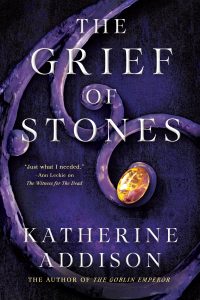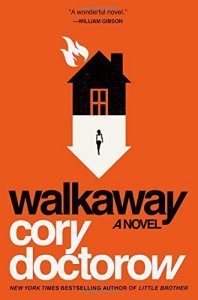Paul Di Filippo reviews Howard Waldrop
 In February of 2008 I attended Boskone, Boston’s oldest SF convention. One of my chief reasons for going was to bask in the presence of my pal Howard Waldrop, who did not often make the journey along the fabled Austin-to-Boston axis.
In February of 2008 I attended Boskone, Boston’s oldest SF convention. One of my chief reasons for going was to bask in the presence of my pal Howard Waldrop, who did not often make the journey along the fabled Austin-to-Boston axis.
(And despite such close personal ties between us, let me affirm that, having come to Howard’s work long before I knew him, allowing me to form my estimates of his skills without partiality, I remain a clear-eyed and objective critic of his stuff.)
We met for lunch, which involved walking a good thirty minutes down frigid streets to Boston’s Chinatown. Howard, then sixty-one-years old, looked younger than his age, trim and vigorous. He kept pace with all of us easily, and tucked away a good portion of dim sum.
A few months later—as he recounts in the introduction to his astonishingly fine new collection—he was at death’s door in the hospital, felled by previously undiagnosed heart ailments and diabetes. His recovery was a long and arduous haul, still not fully completed to this day. The whole experience was certainly a lesson in the unexpected twists and turns life can take, along mortal vectors.
But of course anyone who had read Howard’s wry and wise and worldly fiction over the years knew that Howard Waldrop had such practical life lessons already under his belt, and that such grim knowledge, which would unman other chaps, would not dent his zest for life. The stories in this book—about half pre-crisis, half post-crisis—attest to that. No matter when they were written, they are all filled with the same joie-de-vivre, sense of wonder, ingenious invention and eternally youthful appreciation for the weird and magical rollercoaster ride that is existence.
Howard’s method of storytelling is to put together a rich and allusive bricolage of history and realtime action, keeping his descriptions vivid yet sparse, and his dialogue low-key and naturalistic. His prose is a marvel of evocative economy. He doesn’t believe in over-emoting or “shouting” at the reader. One pictures him as a laidback porch philosopher. At the same time, he’s a bit of a stagey ham, a conjuror who distracts with one hand while producing the rabbit out of the hat or pigeon out of the sleeve with the other.
Howard’s favorite topics range across the spectrum of pop culture and oddball historical moments. By conflating his talismanic icons in ways no one else could imagine, he creates stories that approach the status of modern myths and that are commentaries on obsessiveness and passion, folly and longing, fate and free will. His characters are eccentrics, outsiders, and those who are driven inexorably by their own curious desires. His peers are few, notably Tim Powers, Andy Duncan, Terry Bisson, and R. A. Lafferty.
This collection—which also features Howard’s patented enjoyable and informative story notes—opens with “Why Then Ile Fit You,” which follows the terminal decline of character actor George Zucco, who might or might not be under the ministrations of some strange alien beings. At the end of his life, a nurse approaches. “Inside the glass barrel of the syringe is a green liquid filled with dancing, moving sparks of light. She is not here to take, but to give.”
Next up is “The Wolf-Man of Alcatraz,” which blends lycanthropes and Depression-era prison films from Warner Brothers into some tender-tough musings on what it means to be cursed by your own worst nature, and then finally to be freed.
“The Horse of a Different Color (That You Rode in On)” manages to summon up the era of vaudeville in totally convincing and evocative fashion—through the oral memoirs of the “fifth Marx Brother, Manny”—and then weave some Grail legends with slapstick glee into the tapestry. Fans of Tim Powers’s novels will particularly enjoy this one. Howard’s research abilities into esoterica always shine, but he never dumps overmuch info on his readers.
In “The King of Where-I-Go,” we follow intimately the lives of two siblings, Franklin and Ethel, from their earliest childhood to young adulthood. Immersion in their early non-uncanny lives segues gradually and unstoppably into a strange interval involving Ethel’s paranormal powers being teased out by researchers, and their effects on her brother, before the whole story folds backwards on itself and inverts. The piece evokes the bonds of family beautifully, while also messing surreally with time and space.
Recall the name “Ann Darrow?” She was King Kong’s love interest, as first played by Fay Wray. But in “‘The Bravest Girl I Ever Knew…,'” Ann Darrow and her world is the reality, with more consequences than you can imagine. We get her audacious, touching biography in Photoplay magazine fashion, once again a quilt of inferences and allusions, where the reader must actively assist in the assembly. Howard Waldrop always credits his audience with as much intellect and playfulness as he himself exhibits.
“Thin, On the Ground” is a rollicking catalogue of Mexican folk legends as encountered by two hapless tourists. The telling of this tale reveals a couple of Howard’s personal heroes, I think: Ray Bradbury and Fritz Leiber. Readers of the latter’s “Gonna Roll the Bones” will feel right at home.
A fairy tale dark and poignant is the brief “Kindermarchen,” while “Avast, Abaft!” is a gonzo Monty-Python-style mashup of Gilbert & Sullivan and Peter Pan. Only Howard would know that mermaids made noises like voles. And a beautiful homage to Jack Vance arrives in the pitch-perfect “Frogskin Cap.”
But the final piece, “Ninieslando,” written post-medical-crisis, is perhaps the strongest item in the book, a wrenching meditation on utopias and Temporary Autonomous Zones set in the No Man’s Land of WWI. Howard’s jesting is replaced by a resigned yet hopeful acknowledgement of all the forces in society that try to kill our dreams.
Perhaps the greatest thing about Howard Waldrop and his marvelous fictions is that he has totally obliterated the modern/postmodern divide. He is Sax Rohmer and Donald Barthelme, Bela Lugosi and Johnny Depp. It’s so fitting that Small Beer Press, whose unstated goal seems also to combine the best of both sensibilities, has him as their flagship author. Long may they both endure!







